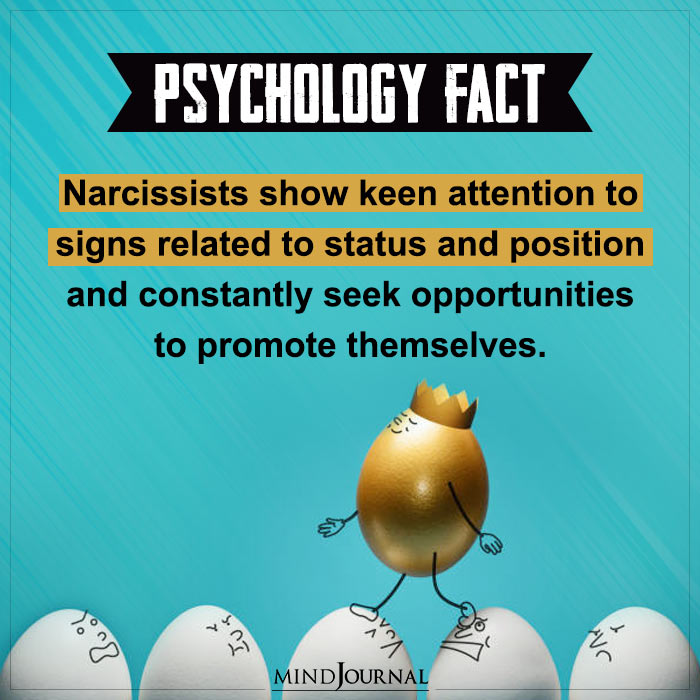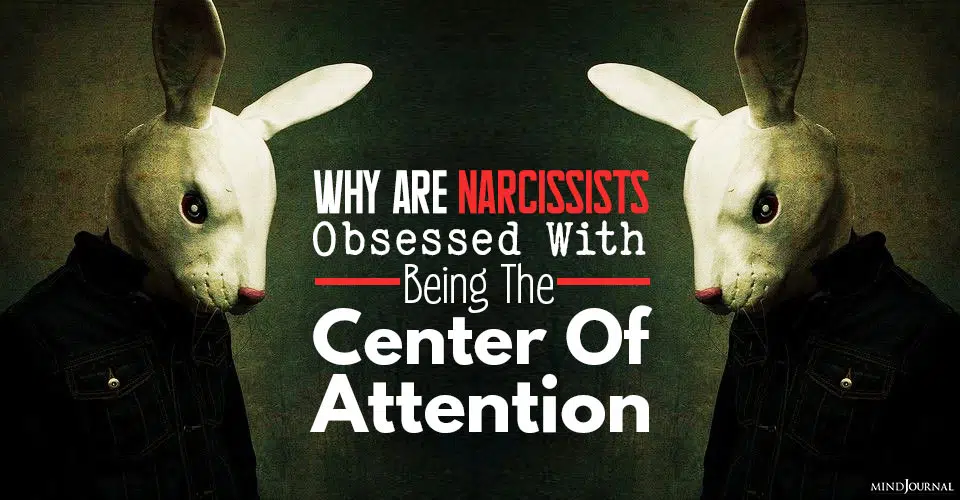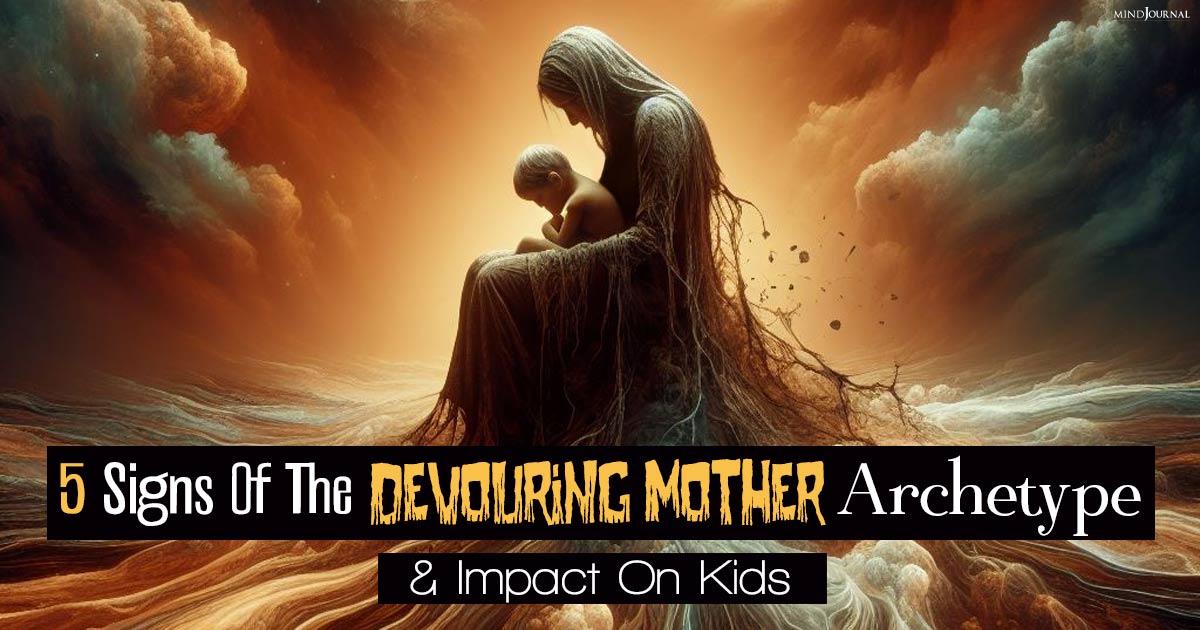Narcissists and their obsessive need for attention go hand in hand, and one is always incomplete without the other. Being the center of attention is what they know best, and narcissists and attention-seeking behaviors are always a sight to behold. But why do they have this constant need for attention? Let’s find out!
People high in narcissism tend to have a distinct preoccupation with being the center of attention. They are highly skilled at making themselves the star of the show, whether by writing the script themselves or hijacking another person’s scene.
To be clinically diagnosed with narcissistic personality disorder (NPD), one has to meet five of these nine attributes, according to the DSM-5:
- Grandiosity with expectations of superior treatment from other people.
- Fixated on fantasies of power, success, intelligence, attractiveness, etc.
- Self-perception of being unique, superior, and associated with high-status people and institutions.
- Needing continual admiration from others.
- A sense of entitlement to special treatment and obedience from others.
- Exploitative of others to achieve personal gain.
- Unwilling to empathize with the feelings, wishes, and needs of other people.
- Intensely envious of others, and golding the belief that others are equally envious of them.
- Pompous and arrogant demeanor.
Narcissism (not NPD), however, is a trait that appears on a continuum across the population, and so it is entirely possible for someone to have narcissistic traits but not be a diagnosable “narcissist.”
Every individual, at any moment in time, though, has a choice in their actions. Those choices, and the corresponding actions, separate the narcissists from the non-narcissists. Those who act and react primarily with empathy—those who can put another person first, not automatically assume blame or praise for themselves, or not exploit or intentionally hurt someone—are not narcissists.
Related: 5 Things Narcissists Do To Be The Center Of Attention
The Star of the Show: Themselves
The most important person in the life of a narcissist is the narcissist. They can temporarily put others ahead of themselves, but only when they somehow benefit from it. Children, partners, friends, and even coworkers are often allowed in the narcissist’s orbit only for their own personal gain.
Narcissists often feel as if they must remain the center of attention in anyone’s life. Relationships often serve the purpose of boosting the narcissist’s status. For example, they may not necessarily want to become a parent, but may change their mind when they realize that with it comes a rise in status and recognition—and the new title of “mom” or “dad.”
Their relationships tend to be defined by status, photos, trophies, milestones, and perfect social media appearances (Sauls et al., 2019). Behind the scenes, though, a romantic partner may be constantly degraded and devalued.
If a narcissist breaks up with a partner, that partner may even find that they’re not left alone to move on healthily. Unless that person goes full no-contact or obtains a restraining order, there is a chance that the narcissist may stalk them, and any new dates, on social media, and continue to dangle the promises of changing for the better in a desperate bid to get their attention back.
Even if a narcissist doesn’t want you, they may still believe you could not want anyone other than them. Narcissists tend to be naturally jealous, and perceived rivalry can attack their fragile sense of self-worth (Geukes et al., 2017). When an ex begins dating again, the jealousy can inflame to dangerous proportions.
It may seem that someone who is especially high in narcissism cannot love anyone except themselves, which is a tedious and unpredictable relationship. They may have high yet fragile self-esteem. They may dislike themselves and privately pick apart their flaws, but still not take the blame or responsibility for anything negative because they are sure they are unique and special.
If their marriage falls apart, it’s the spouse’s fault. If they fail a class, it’s the teacher’s fault. If they get fired, it’s the boss’s fault. Since they rarely perceive bad things to be “their fault,” narcissists rarely make amends or apologize.
Narcissists usually won’t change for the better because that requires a critical eye turned toward the self. Many people who are high in narcissism cannot handle anything that may deflate their ego. If a narcissist truly looked inward to see how their actions have damaged lives and reputations, they may feel like they would never be able to leave a therapist’s office again.
If a narcissist does go into counseling, it is often because someone else’s actions have upset them or they were pressured to do so by a loved one. Narcissists may also jump from one therapist to another, or abruptly terminate treatment, never allowing a professional to truly get to know them.
Narcissists tend to require coddling, service, and flattery. A therapist who calls a narcissist out for their behavior may not last very long in the narcissist’s orbit. They may instead become another victim of a smear campaign, libel, or slander.

How to Handle the Need for Attention
The best tactic for dealing with someone high in narcissism is usually not to engage with them unless you absolutely have to. Do not respond to emails, text messages, phone calls, or social media messages. Go full no-contact if you can, or at least insist on communicating via email or text messages so you have proof of what was said.
A narcissist may attempt to ask questions, send a “Whoops! Wrong person!” text or email, “accidentally” tag you in a Facebook memory, “pocket-dial” your number, or even be “casually” driving by your house in an attempt to grab and hold your attention. Any response, even a friendly response to a question, could allow the narcissist to believe that they are still desired.
Related: 3 Sneaky Techniques Narcissists Use For Constant Need For Attention
If you can’t block them, either ignore them or answer with a pre-determined response such as “please leave me alone” or “I will only discuss matters of custody with you.”
The moment a conversation veers off the approved topic or into attacks, end it. If the harassment continues, seek an order of protection. It may seem dramatic or unnecessary, but narcissists are unlikely to take “no” for an answer otherwise.
Want to know more about a narcissist’s need for attention? Check this video out below!
References:
[1]DSM-5. (no date). Narcissistic personality disorder. Narcopath.com. narcopath.info/about-npd/overview/dsm-5/ [2]Geukes, K., Nestler, S., Hutteman, R., Dufner, M., Kufner, A., Egloff, B., Denissen, J. J. A., & Back, M. D. (2017). Puffed-up but shaky selves: State self-esteem level and variability in narcissists. Journal of Personal & Social Psychology 112(5). 769-786. [3]Sauls, D., Zeigler-Hill, V., Vrabel, J. K., & Lehtman, M.(2019). How do narcissists get what they want from their romantic partners? The connections that narcissistic admiration and narcissistic rivalry have with influence strategies. Personality and Individual Differences 147. 33-42. https://doi.org/10.1016/j.paid.2019.04.025
Written By Kristy Lee Hochenberger Originally Appeared On Psychology Today









Leave a Reply
You must be logged in to post a comment.